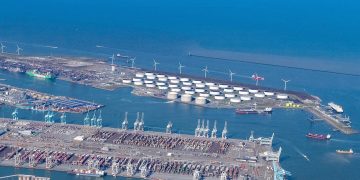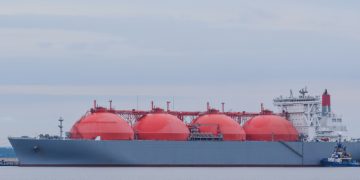Five years after the Fukushima nuclear accident, there is still no U.S. federal agency responsible for studies of radioactive contaminants in the ocean. But scientific data about the levels of radioactivity in the ocean off our shores are available publicly thanks to ongoing efforts of independent researchers, including Ken Buesseler, a radiochemist with Woods Hole Oceanographic Institution (WHOI), who has led the effort to create and maintain an ocean monitoring network along the U.S. West Coast.

Buesseler’s work reveals that levels of radioactive forms of cesium in the ocean off Japan are thousands of times lower than during the peak releases in 2011, however, his analysis of cesium and strontium indicate releases from the plant are not yet “under control,” a statement that has been used by the Japanese government to described the situation when levels are below regulatory limits.
“To date, we have focused our efforts on testing for the two isotopes of cesium (137 and 134) and strontium,” says Buesseler. “The cesium isotopes were the most abundant after the accident and provide the first indication of whether contamination from Fukushima is present in a seawater sample.” Because cesium-134 has a half-life of just two years, researchers know, when detected, that it comes from Fukushima. Cesium was 40 times more abundant in the water after the accident than strontium – a ratio that the scientists discover is changing.
The changing concentrations of both these elements in the waters off Japan tell a story of continued small leaks and raise concerns about the materials still stored at the reactor site.
Cesium levels in the water off Japan spiked after the accident, then fell dramatically in the following year. Since then, however, rather than a steady decline, the cesium levels have remained relatively constant.
“Levels today off Japan are thousands of times lower than during the peak releases in 2011,” says Buesseler. “But we are not seeing the steady decrease we would expect to see off Fukushima if all sources had stopped; rather, we are finding values are still elevated, which confirms that there is continued release from the plant.”
The highest level of cesium Buesseler’s team found in a sample taken off Japan in October 2015 measured 200 Becquerels per cubic meter (about 264 gallons) of seawater. (A Becquerel equals one decay event per second.) The samples were collected following a typhoon in September that delivered unusually heavy rains, which the researchers suspect may have caused elevated cesium levels in the ocean. These levels are still higher than prior to the accident but much lower than at the peak of the releases in 2011 when there were 50 million Bq/m3 in the ocean immediately off the dock at Fukushima.
While not declining as quickly as researchers had expected, the levels detected near Japan are still more than 40 times lower than US government safety limits for drinking water, and well below limits of concern for direct exposure while swimming, boating, or other recreational activities. At these lower levels, the concern remains for seafood safety and internal consumption of radioactive contaminants in fish.
Source & Image Credit: WHOI



























































